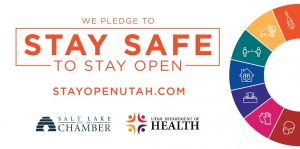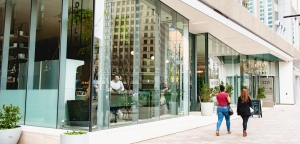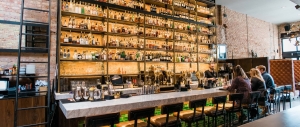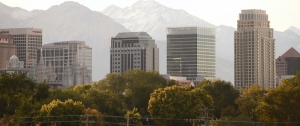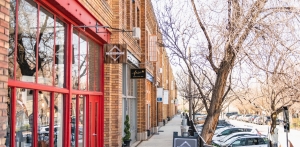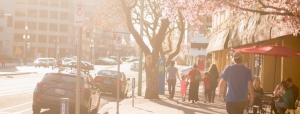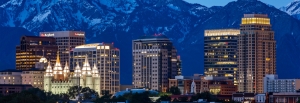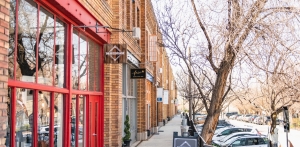Downtown SLC Businesses Stay Safe to Stay Open
Stay Safe to Stay Open is a statewide campaign to meet the critical imperatives of helping Utah address the health-related objectives to prevent and recover from the coronavirus while at the same time assisting the business community in an effort to appropriately strengthen our state’s economy.
Stay Safe to Stay Open seeks to educate, inform and help businesses communicate to their consumers that they have pledged to follow safety guidance from the Utah Department of Health.
Businesses participating in the campaign will be able to clearly identify their participation by colorful signage displayed in their windows and throughout their establishments, demonstrating that they have taken a pledge to follow the state’s guidelines.
Join the following downtown SLC businesses in taking the Stay Safe to Stay Open Pledge. Join here.
Participating downtown SLC businesses:
The Depot
City Creek Center
LDS Business College
Especially For You
Theory Salon
Utah Woolen Mills
Dexterity Salon
Latter Day Bride
Discovery Gateway
The Hilton
Western Nut Company
Downtown Farmers Market
Tailor Cooperative
Caffe Molise
BTG Wine Bar
Hotel Monaco
BW Productions
Caputo's Market and Deli
Industrious
Poplar Street Pub
Presto Print
Salt Lake Power Yoga
Peak 45
GOED
World Trade Center Utah
Taqueria 27
Array Tattoo
The Heavy Metal Shop
Ken Sanders Rare Books
United Way Salt Lake
Department of Workforce Services
Salt Lake Film Society
Quarters Arcade Bar
Rich's Burgers
Washington Federal Bank
The Leonardo
Ginger Street
Smith Bespoke
Twist
Downtown SLC's local businesses are an integral part of our local economy as they add vibrancy and walkability to our downtown streets. As businesses continue to open their doors amidst the COVID-19 pandemic, the health and safety of customers and staff remain top-of-mind. We asked several businesses how they're faring and what they are doing to adapt to the current situation.
We encourage you to support our local businesses during this time - be sure to check out our restaurant dining guide that features take-out, delivery and dine-in options.
How was your business impacted by COVID-19?
Salt Lake Power Yoga: We closed our business effective March 16. We went from offering 65+ Live classes a week to offering less than 20 classes on the virtual platform. We opened again with one live class per day on May 18, and are continuing to host the virtual classes.
Caputos Market & Deli: It is a challenge to describe the innumerable ways our company has been impacted by COVID-19. Entire revenue channels vanished, as our restaurant wholesale customers shut their doors, our dining rooms closed, and our popular tasting classes disappeared. Almost a hundred employees' livelihoods weighed heavily on our shoulders, while we were faced with a fraction of the ability needed to provide for them. Sales in our markets (which remained open for shopping) plummeted. So many sleepless nights. In spite of these incredible challenges, the global pandemic also presented opportunities - for example, our online grocery business skyrocketed. The strength and adaptability of our crew became widely apparent as chefs became delivery drivers and cheesemongers became packers for online orders. The 4-per week average tasting classes that disappeared soon were resurrected with online Zoom classes, now reaching people from coast to coast. To put it simply, it's been heartbreaking, indescribably stressful, but full of silver linings.
What changes have you made to adapt to the situation over the past couple of months?
Boltcutter/Monkeywrench: The biggest change that we have made to adapt to the current situation was to design and install large panels on the storefronts of Boltcutter and Monkeywrench so that we can take orders and deliver food to our guests without having them inside of our space. We also built out online ordering platforms for Buds, Boltcutter and Monkeywrench which is not something we had available to our guests prior to COVID-19. Learning how these systems function and how to utilize them to best serve our guests has been a new challenge.
The Bourbon Group: The Bourbon Group has taken a safety/sanitation first approach. We are following all state guidelines and have taken extra steps as a company to minimize risk to our staff and guests. We ask each guest to sanitize before entering and provide them with a mask to wear while communicating with our staff. We professionally sanitize each establishment 3 times a week as well as having staff sanitize every surface every 30 min each day. We have also started to take reservations in order to be able to control our door and eliminate people having to wait for tables.
How have you adapted your operations to ensure the health and safety of your customers and employees?
Boltcutter/Monkeywrench: All of our employees work in masks, we have increased our sanitation protocols and we are not allowing any dine-in customers. We made and installed pickup windows at Boltcutter and Monkeywrench to reduce air exchange between the staff and customers and allow for contactless customer experience. We are now a cashless operation too.
Salt Lake Power Yoga: Everything was revamped. We remained closed longer than required because we didn’t feel like it was appropriate to open without thoroughly reviewing every aspect of our business, with the safety of our staff and students always at the forefront. Required masks, signage, communication, social distancing, traffic patterns inside the studio, cleaning and disinfecting protocols, and limiting the capacity to a maximum of 18 students in the practice space (normally our capacity is 65 ppl) are examples of some of the pivots we have made with COVID. We have been in constant communication with the Salt Lake Health Department to ensure that we are doing everything in our power to provide a safe space for people to practice yoga.
How do you see your business continuing to develop into the future?
Caputos Market & Deli: Many of the things we put in place to survive during the pandemic will allow us to thrive long after it is over. For example, online ordering for local delivery of sandwiches executed by our own drivers rather than 3rd party delivery app will remain. Shipping of groceries via USPS and FedEx has been even more popular than local delivery. Customers can order online in all 50 states and expect free and fast shipping and the same incredible customer service they get in our physical stores. Our online sales are now larger than in-store and growing quickly! We have also moved our classes online, and while many others have also done this, ours include samples of the food shipped to your door and a truly engaging and educational experience. The response has been so incredible that we envision using Zoom to change the way specialty food is sold online. For example, why have a personal shopper, when you can talk with a cheesemonger? We are developing a virtual work station at Caputo's cheese counter where our mongers can guide online customers to delicious products that fit their preferences and needs. Just like the experience, they would get when standing at the cheese counter in Salt Lake City, but then shipped to their door anywhere in the USA!
The Bourbon Group: We have always had a high standard for sanitation and safety. We will continue to adapt, improve and implement new and better policies and practices.
Why should people start to come back to your business now they are allowed to do so?
Salt Lake Power Yoga: Now more than ever, people need the practice of yoga. The practice of coming to their mat, staying in the stillness, moving their bodies and connecting with breath, other students and their teacher. We invite everyone to practice with us, whether it is from their own home or in the studio. Local studios like Salt Lake Power Yoga will make it through this crisis with support from our incredible community. Spending your dollars on our classes or on our retail goods flows directly to the teachers you love and will help keep the light on in the studio many call home. Now more than ever, small local businesses need our support. 100% goes stays local. No franchise, or corporate contracts with this local studio!
Caputos Market & Deli: The same reason they always have - out of love for the good stuff. Many of the foods we treasure most - artisan cheese, salumi, tinned seafood - has been around for hundreds of years, through world wars, natural disasters, and other global pandemics. We are committed to doing our part to ensure these traditions continue, and continually adapting in order to share how special they are. Caputo's is built on connection to our past, our present, our future, and our customers. We hope people will come to our shops (in person and online) to experience the food traditions we strive to preserve.
Special thanks to Boltcutter, Caputos Market & Deli, The Bourbon Group and Salt Lake Power Yoga for participating. Learn more and visit these businesses by clicking the links below:
Hosted 5-14-20 by Local First and Downtown Alliance
View the video of the discussion here
Key Takeaways and Comments:
Many establishments are open for business. To ensure everyone's health and safety, local practices include:
- Utilizing 3rd party delivery services, on-line ordering, and curbside pick up options
- Applying strict safety and cleaning protocols such as:
- Signage throughout highlighting safe social distancing and cleaning practices
- Directional travel-one way in, one way out
- Strict cleaning and sanitation practices
- Keeping logs for the health department that include temperature checks and sanitization practices.
- Taking employees temperature when arriving to work
- Utilizing QR codes, customers can simply scan the QR code and view the menu on their phone in lieu of paper menus
- Separating work spaces for employees to allow for social distancing
- Requiring employees and patrons to wear masks and providing them to those that arrive without one
- Creating plans to open dining, gathering, and venue areas at reduced occupancy.
Communication is key for both consumer and employee confidence. Local practices include:
- Including checklists with take-out orders that identify safety and sanitary practices taken while preparing orders.
- Communicating with employees all the steps taken to keep them safe at work.
- Respecting those employees that don’t feel safe to come back to work.
Some businesses are choosing to stay closed! Reasons are:
- Workspaces too small to accomodate safe social distancing practices
- Safe social distancing practices not practical or economically viable
- Bringing back furloughed employees too soon too risky and expensive
Personal Protective Equipment (PPE) is in high demand. PPE information:
- PPE Pushpack Program Launched to Help Small Business Jump Start COID-19 Transition
- PPE Resources and Vendor List
Some business owners advocate for sealed “to-go” cocktails. Reasons include:
- Businesses sitting on expensive inventory and no ability to recoup costs
- Offering sealed cocktails with take out orders is an opportunity for increased sales
Comments from business owners regarding Paycheck Protection Program (PPP), and bringing back employees include:
- Round 2 of PPP funding was deposited Wednesday, so now we’re figuring out how to get employees back to work which is challenging.
- We applied for the PPP for the second time and received word recently that we got it. I’m still hearing various concerns on the PPP from our accountant, lawyers and bankers so we plan to hold off dipping into it for the time being. Pre-Covid we had 16 on staff and have 8 willing to come back to work should we open on the date we had in mind.
- Extension of the 8 week PPP use to 16+ weeks would be very helpful. Having to reach the 75% + rehiring the equivalent of FTE is impossible when the health department has criteria that limits us to less than 40% capacity — IF we were to reopen we would incur the extra PPE costs. Most importantly, the customer confidence is at about 19% for dining in. We furloughed 64 ppl on March 17th.
Re-Opening Round Table Discussion with Salt Lake City Independent Breweries & Distilleries.
Hosted 5-14-20 by Local First and Downtown Alliance.
View the video of the discussion here
Breweries and Distilleries are taking safety precautions seriously. Local practices include:
- Tours, tastings, and purchasing- By appointment only- some plan to keep this practice on-going
- Frequent sanitization practices
- Providing PPE to employees and customers
- Those with seating are strategizing on safe reopening practices.
- Some suggested it as a safe option for those that don’t want to wait in line at the liquor stores
Notes:
Supply chains are compromised, ethanol and other products used in botanicals are in reduced supply due to market demand for hand sanitizer and plant closures internationally.
One business owner suggested that DABC practices are not friendly to local producers, and less-expensive national products are prioritized. Prioritized placement of cheaper products contributes to a drinking culture of overconsumption by adults and minors.
Watch Here: Downtown Office Outlook Recap - Emerging Trends for Safe and Healthy Office Activation
As businesses and property owners welcome employees back to their offices, health safety questions abound. In the short term, what are the emerging best practices for managing a safe office? How can we shore up employee confidence in the workplace environment? Long-term, how will health safety concerns impact office design, development, and leasing?
On May 20, the Downtown Alliance was joined by a panel of real estate experts to help answer these questions and many more. You can view the recording in its entirety below. **Several links and resources are mentioned in the recording, those can also be found below.
If you enjoyed this content, we encourage you to sign up for ULI Utah's Building Earthquake Resilient Communities Webinar on June 2nd. You can learn more and register here.
Resource Links
- Here is the Salt Lake Chamber's Office Reactivation Plan 1.1. The Chamber and Downtown Alliance published the plan to all employees prior to reactivating their office with a phased process of bringing back employees incrementally. This may be a useful communication resource that can be adapted for your office reactivation.
- Recovery Readiness Guide and THE SAFE SIX CHECKLIST
- Six Feet Office – Our “Living Lab” in the Netherlands
- Strategies to support the Covid Crisis
- Colliers Back to Work Navigator
- CBRE’s Return-to-Work Survey Summary
- CBRE's Landlord Briefing Guide
- CBRE's COVID-19 HUB
Hosted 5-12-20 by Local First and Downtown Alliance
View the video of the discussion here
Key takeaways and questions:
- Community is stepping up in big ways to support the local business community and businesses are pivoting to provide goods and services safely!
- Sales over the Mother’s Day Weekend were strong. Retailers called the customer support last weekend “a godsend.”
- Can a business refuse service to a customer that is not abiding by the business’s health considerations (e.g. wearing a mask)?
Some of the businesses at the round table are requesting that customers wear masks while in their store. None have had to refuse service to a customer. Some worked out alternative arrangements (delivery, curb-side hand-off).
Downtown Alliance looked into State and County requirements. The current State Executive Order directs business employees and health care workers to use a mask or face covering and makes a “strong recommendation” that other individuals do the same. Salt Lake County Health has not yet (5/12/20) responded with any legal guidance however they have provided general business and social reopening guidelines.
Downtown Alliance suggests that retail operators consult with your legal counsel about refusing service to a customer based on their behavior in your store.
- Where can I get Personal Protective Equipment (PPE) for my business?
Small businesses can acquire a PPE Push Pack at no charge through the State. Register here to receive your PPE Push Pack.
The State has also compiled a vendor list of Utah companies where you can purchase PPE and other critical supplies.
- How can I avoid paying back Paycheck Protection Program (PPP) funding? Some businesses suggest that the business owners should put themselves on the payroll for the duration of time they’ve received the funding.
Loan details and forgiveness information on the SBA Paycheck Protection Program (PPP) can be here
- Business owners are experiencing difficulties in hiring back employees who are receiving unemployment benefits.
Information on COVID-19-Unemployment insurance from the Department of Workforce Services can be found here.
COVID-19 Commercial Rental Assistance Program can be found here. Completed applications are accepted on a first-come, first-served basis. The application process will remain open until all grant funds are used.
Register for upcoming Re-Opening Round Table Discussions for Salt Lake City Businesses here.
In partnership with the Salt Lake City Business Development Department and the Downtown Alliance, Local First Utah is hosting peer to peer roundtable discussions with independent businesses located within Salt Lake City boundaries.
These are peer-to-peer roundtable discussions where we can learn from each other, share best-practices and ask other operators questions to help you reactivate your business
Businesses are invited to participate in these sector-specific roundtable discussions whether your business is open now or will be opening later.
INDEPENDENT RESTAURANTS, BARS & CAFES ROUND TABLE
Thursday, May 14th at 10 am - REGISTER HERE
INDEPENDENT BREWERIES & DISTILLERIES ROUND TABLE
Thursday, May 14th at 2 pm - REGISTER HERE
INDEPENDENT SALONS, SPAS & PERSONAL CARE SERVICE PROVIDERS ROUND TABLE
Thursday, May 19th at 2 pm - REGISTER HERE
INDEPENDENT FOOD TRUCKS ROUND TABLE
Tuesday, May 26th at 10 am - REGISTER HERE
INDEPENDENT CONCERT, EVENT & ENTERTAINMENT VENUES ROUND TABLE
Thursday, May 27 at 2 pm - REGISTER HERE
INDEPENDENT MAKERS & MANUFACTURERS ROUND TABLE
Thursday, May 21st at 2 pm - REGISTER HERE
Head over to Localfirst.org to see more
Resources for reopening your downtown business: PPE, guidelines and sector best practices
As you prepare your business to safely welcome employees and customers, the state advises, and in some instances requires, the use of personal protective equipment (PPE)--face masks, gloves, hand sanitizer and other items--for everyone at your place of business.
Small businesses with 50 or fewer employees can acquire a PPE Push Pack at no charge through the State. Register here to receive your PPE Push Pack.
The State has also compiled a vendor list of Utah companies where you can purchase PPE and other critical supplies. A Mask for Every Utahn ensures every resident can access a personal mask.
As we prepare to reopen our businesses, go back to our offices, and move about downtown, we must continue to practice social-distancing and take personal responsibility to minimize the spread of COVID 19.
Governor Herbert has declared a moderate risk phase (orange phase) for most Utahns. Accordingly, the state Department of Health has published guidelines for individuals and businesses. Please note that high-risk individuals should continue to operate under the high-risk guidelines.
Be safe. And let’s support one another as we adapt and innovate. Do you have information or best practices to share? Send it to and we can amplify it here.
Here are helpful resources we received recently:
- The State of Utah: Community Resources
- Cushman and Wakefield: Retail Readiness Essentials Checklist
- Cushman and Wakefield: Warehouse Readiness Essentials Checklist
- CBRE: Reopening The World’s Workplaces
- CDC: Reopening Guidance for Cleaning and Disinfecting Public Spaces, Workplaces, Businesses, Schools, and Homes
- Goldman Sachs: Top of Mind: Reopening the Economy
As downtown property leaders prepare for the crisis, stabilization and recovery phases of the COVID-19 pandemic, the most important thing we can do for our common health and our collective economic recovery is to follow health advisories for preventing the spread of the COVID-19 virus. Preserving our collective health is our primary goal. And it will help us resume the work, payrolls and economic activity vital to downtown Salt Lake City’s future. Below are links and best practices we recently gleaned from commercial real estate leaders.
Protect your stakeholders’ health and safety:
- Ensure your sick employees stay home and away from people.
- Perform COVID-19 cleaning protocols
- Share guidance for employers -- practice and share with tenants.
Considerations to promote cleaner air:
- Disinfect the indoor environment daily. Open windows and ventilate frequently.
- If possible, use ultraviolet radiation on the cooling coils and drain pans of the air conditioning system.
- Where possible, identify separate ascending and descending stairways to assist with social distancing. Enhance ventilation in stairwells.
- Run stand-alone air purifiers to further reduce possible contaminated air and air pollutants brought in by natural ventilation.
Take a long-view on tenant lease, rent options and relief:
- Often, the key provisions affecting rent abatement in a typical commercial lease are:
- Interruption of Essential Services.
- Casualty.
- Condemnation.
- Force Majeure.
- Property owners and occupiers should determine lease provisions’ applicability to the COVID-19 pandemic and key issues such as:
- Access to the Premises: Is the tenant’s premises available for use?
- Governmental Action: Has the tenant’s decision not to occupy the space been caused by government action (i.e. curfew or shelter-in-place order)?
- Essential Services: Is the landlord providing all required services to the tenant (i.e., utilities, HVAC, cleaning, security)?
- Damage: Has there been damage to the premises?
- Facilitating a productive dialogue between occupiers and owners around lease provisions, each other’s current circumstances and potential business resolutions will strengthen relationships for a path forward together.
Update your emergency management plan and Address:
- Infectious disease
- Needs of vulnerable occupants
- Staff responsible for managing response on property
- Staff responsible for managing tenant communications
- Updating off-site contact information for tenants.
Publish information resources to tenants:
- Create and publish shelter-in-place plans
- Explain and reiterate enhanced cleaning procedures in the common areas
- Communicate effectively. Be credible. Express empathy. Promote action. Show respect.
Audiences:Communication Channels:Use Verified Sources:
Employees
Your website Coronavirus.utah.gov Tenants Posters Salt Lake County Visitors Elevator, lobby screens Salt Lake City Contractors Telephone and text trees CDC Community Partners Webinars World Health Organization Media Email updates Urban Land Institute
Gather and promote good intel:
Industry leaders are collaborating on webinars and other communications. Stay up-to-date on property leaders’ proactive efforts and responses. Share helpful communications with Downtown Alliance () and we will publish resources to the downtown property community that you can use and share with your employees, customers and tenants.
Stay apprised of local and national financial resources such as:
- The historic Coronavirus Aid, Relief, and Economic Security (CARES) Act has made available $349 Billion in emergency small business capital through the Small Business Administration.
- Salt Lake City’s Emergency Loan Program is intended to help businesses keep their employees and stay afloat during a time of economic hardship.
- The Utah Governor’s Office of Economic Development is offering a bridge loan to Utah-based small businesses with 50 or fewer employees impacted by the COVID-19 pandemic.
Additional Resources:
DESIGN, REAL ESTATE, AND COVID-19
Architect Magazine: How Architecture Firms are Responding to COVID-19
Architectural Digest: How the COVID-19 Pandemic Will Change the Built Environment
ASHRAE: COVID-19 Preparedness Resources
Building Operating Management: Coronavirus Resources for Facilities
CERC: Crisis & Emergency Risk Communications
CIDRAP: COVID-19 Information for Employers, Business
CityLab: Pandemics Are Also an Urban Planning Problem
Curbed: Design in the age of pandemics
BOMA Canada: Coronavirus Resources
Center for Active Design: 5 Ways to Optimize Buildings for COVID-19 Prevention
Financial Times: How Healthy Buildings Can Help Us Fight Coronavirus
Multi-Housing News: What Property Managers Should Be Doing Right Now
New York Times: Your Building Can Make You Sick or Keep You Well
Next City: Housing in Brief: What Landlords Are Saying About Rent and Evictions During the Outbreak
OSHA: Guidance for Preparing Workplaces for COVID-19
Urban Land Magazine: Confronting COVID-19: Social Distancing, Buildings, and Lessons from Asia
World Health Organization: Getting Your Workplace Ready for COVID-19
GENERAL INFORMATION AND GUIDANCE
Enterprise Community Partners: Maintaining Business Continuity During the Covid-19 Pandemic
Global Wellness Institute: PositivelyWell
New York Times: Flattening the Coronavirus Curve
New York Times: How Long Will Coronavirus Live on Surfaces or in the Air Around You?
PBS NewsHour: How to help others in the COVID-19 crisis
USA Today: 6 things to know if you’re living with someone who has coronavirus, or think you might be
USA Today: Coronavirus reality check: 7 myths about social distancing, busted
U.S. CDC: Interim Guidance for Businesses and Employers to Plan and Respond to Coronavirus Disease 2019
U.S. CDC: What every American and community can do now to decrease the spread of the coronavirus
Washington Post: As coronavirus spreads, the bill for our public health failures is due
Source: Urban Land Institute
Financial Help for Small Businesses in Salt Lake City
Your Salt Lake City small business may qualify for an emergency loan or funding from the Salt Lake City Economic Development Loan Fund and the Small Business Administration.
Salt Lake City’s Emergency Loan Program
The program is intended to help businesses keep their employees, pay bills and bridge the gap through this time of economic hardship. The City aims to provide as much relief as possible, however, loan approvals will be limited (see below) during this high-volume application period. If you need financial assistance in the form of larger loans and longer payback periods, you can find additional resources below.
The second round application period will be open until Thursday, April 2nd at 11:59 p.m. Only complete applications will be evaluated.
SLC Emergency Loan Fund Program Guidelines:
- Maximum Loan Amount: $20,000
- Interest: 0%
- Term: 5 Years
- Loans can be used for ONLY working capital, marketing, inventory
- Applying for this loan will NOT disqualify you for additional funds from the SBA Emergency Loan Program.
- Repayment will be deferred for approximately 90 days following the expiration of the Mayor’s “Proclamation Declaring a Local Emergency"
To apply for this program and get up-to-date information on other sources, visit: https://www.slc.gov/ed/covid19/
U.S. Small Business Administration (SBA)
The U.S. Small Business Administration (SBA) is offering low-interest federal disaster loans for working capital to Utah small businesses suffering substantial economic injury as a result of the Coronavirus (COVID-19). SBA assistance is available in all 29 Utah counties.
The SBA Disaster Assistance:
- SBA’s Economic Injury Disaster Loans offer up to $2 million in assistance to help overcome the temporary loss of revenue and pay fixed debts, payroll, accounts payable and other bills.
- The interest rate is 3.75% for small businesses and 2.75% for non-profits.
- Questions? Contact the SBA at 1-800-659-2955 (TTY: 1-800-877-8339) or e-mail .
Additional Funding Sources:
-KIVA-Facebook Small Business Grants Program-WCF Insurance - COVID-19 Guidance
Additional Financial Tips:
- Renegotiate Rent Payments - Talk to your landlord today about a temporary reduced or free rent period for the duration that your business is affected.
- Renegotiate Debt Repayment - Call your lender(s) today to discuss options. If economic conditions worsen, they will be increasingly willing to negotiate and may have government resources to revise repayment terms. This could involve deferred payments or reduced payments for a period.
- Discuss terms with suppliers - Talk with your suppliers to see if you can secure price reductions, extended credit terms, return unused product, or achieve other terms to reduce the cash you have to spend right now to operate your business.
- Reduce work hours and/or add furlough days - Times like these can be stressful for everyone, especially the insecurity that employees may feel about their jobs. Involve them in decisions to reduce the hours worked and voluntary furlough days (unpaid days off) to find a solution that can ensure the survivability of the business and their employment through the crisis.
- Cut costs - Make your best estimates for revenue this quarter and this year. Prioritize your spending to support this revenue and cut lower priority spending. You know best what is needed. Can you forgo business lunches? Club memberships? Travel? Office amenities? Every bit can make a difference.
Pro Tip: COVID-19 employer information:
Check for updates at slchamber.com/coronavirusSources: Salt Lake City Economic Development; U.S. SBA; Utah SBDC
If you have any additional questions regarding qualifications or how to apply, please contact

